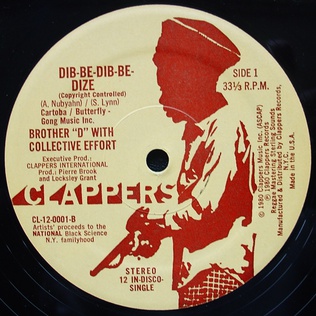Lyrics are words that make up a song, usually consisting of verses and choruses. The writer of lyrics is a lyricist. The words to an extended musical composition such as an opera are, however, usually known as a "libretto" and their writer, as a "librettist". Rap songs and grime contain rap lyrics that are meant to be spoken rhythmically rather than sung. The meaning of lyrics can either be explicit or implicit. Some lyrics are abstract, almost unintelligible, and, in such cases, their explication emphasizes form, articulation, meter, and symmetry of expression.

Carolyn D. Wright was an American poet. She was a MacArthur Fellow, a Guggenheim Fellow, and the Poet Laureate of Rhode Island.

David Lehman is an American poet, non-fiction writer, and literary critic, and the founder and series editor for The Best American Poetry. He was a writer and freelance journalist for fifteen years, writing for such publications as Newsweek, The Wall Street Journal, and The New York Times. In 2006, Lehman served as Editor for the new Oxford Book of American Poetry. He taught and was the Poetry Coordinator at The New School in New York City until May 2018.

Critical Beatdown is the debut studio album by American hip hop group Ultramagnetic MCs, released on October 4, 1988, by Next Plateau Records. Production for the album was handled primarily by the group's rapper and producer Ced-Gee, who employed an E-mu SP-1200 sampler as the album's main instrument. Music journalists have noted the album for its innovative production, funk-based samples, self-assertive themes, and clever lyrical rhymes by Ced-Gee and rapper Kool Keith.
Nationality words link to articles with information on the nation's poetry or literature.
Flocabulary is a Brooklyn-based company that creates educational hip hop songs, videos and additional materials for students in grades K-12. Founded in 2004 by Blake Harrison and Alex Rappaport, the company takes a nontraditional approach to teaching vocabulary, United States history, math, science and other subjects by integrating content into recorded raps. Flocabulary's website features videos, lesson plans, activities and assessment or with songs. The company's name is a portmanteau of "flow" and "vocabulary".

8th Wonder is the second album by the American rap group the Sugarhill Gang. The album was released in 1981 for Sugar Hill Records and was again produced by Sylvia Robinson and James Cullimore. Though not as successful as the group's previous album, the album did feature the minor hits "8th Wonder" and "Apache" and featured an appearance by another Sugar Hill Records rap group, Grandmaster Flash and the Furious Five on "Showdown".

How a Black Man Feels is the fifth album by the American rapper Schoolly D. It was released in 1991 via Capitol Records, his first album for the label. The album spawned three singles, "Original Gangster", “Where’d You Get That Funk From”, and “King of New York”.

Deuce is the second album by the American musician Kurtis Blow. It was released on June 15, 1981, by Mercury Records. It peaked at number 35 on the R&B charts, and number 137 on the Billboard 200.

Stephanie Burt is a literary critic and poet who is Donald P. and Katherine B. Loker Professor of English at Harvard University. The New York Times has called her "one of the most influential poetry critics of [her] generation". Burt grew up around Washington, D.C. She has published various collections of poetry and a large amount of literary criticism and research. Her work has appeared in The New Yorker,The New York Times Book Review, The London Review of Books, and other publications.
Rachel Zucker is an American poet born in New York City in 1971. She is the author of five collections of poetry, most recently, SoundMachine. She also co-edited the book Women Poets on Mentorship: Efforts and Affections with fellow poet, Arielle Greenberg.

Book of Rhymes: The Poetics of Hip Hop is a book by literary scholar Adam Bradley that looks at hip hop music's literary techniques and argues "that we must understand rap as poetry or miss the vanguard of poetry today". The Dallas Morning News described it by saying, "You'll find Yeats and Frost alongside Nas and...Wu-Tang Clan, together forming a discussion on meter and accent, scansion, and slant rhymes". Bradley is an associate professor of English at the University of Colorado at Boulder, with a PhD in English from Harvard University.

George Bradley is an American poet, editor, and fiction writer whose work is characterized by formal structure, humor, and satirical narrative.

Karl Kirchwey is an American poet, essayist, translator, critic, teacher, arts administrator, and literary curator. His career has taken place both inside and outside of academia. He is Professor of English and Creative Writing at Boston University, where he teaches in the MFA Program in Creative Writing and in the MFA degree program in Literary Translation. His published work includes seven books of poems, two poetry anthologies, and a translation of French poet Paul Verlaine’s first book of poems.

Dan Chiasson is an American poet, critic, and journalist. The Sewanee Review called Chiasson "the country's most visible poet-critic." He is the Lorraine Chao Wang Professor of English Literature at Wellesley College.
Christian Wiman is an American poet, translator and editor.

How to Rap: The Art & Science of the Hip-Hop MC is a book on hip hop music and rapping by Paul Edwards. It is compiled from interviews with 104 notable rappers who provide insights into how they write and perform their lyrics.
Adam Bradley is an American literary critic, professor, and a writer on popular culture. He is the author or editor of six books. Bradley has written extensively on song lyrics as well as on the literature and legacy of the American novelist Ralph Ellison. His commentary has appeared in The New York Times, The Wall Street Journal, The Washington Post and in numerous other publications. He is a professor of English at the University of California, Los Angeles where he directs the Laboratory for Race & Popular Culture.

Citizen: An American Lyric is a 2014 book-length poem and a series of lyric essays by American poet Claudia Rankine. Citizen stretches the conventions of traditional lyric poetry by interweaving several forms of text and media into a collective portrait of racial relations in the United States. The book ranked as a New York Times Bestseller in 2015 and won several awards, including the 2014 National Book Critics Circle Award for Poetry, the 2015 NAACP Image Award for Outstanding Literary Work in Poetry, and the 2015 Forward Prize for Poetry Best Collection.

"How We Gonna Make the Black Nation Rise?" is a 1980 hip hop song by Brother D with Collective Effort. Released on the independent label Clappers, it is considered the first political hip hop song. Like the content of the song, the label Clappers Records was developed by Lister Hewan-Lowe who wanted to create a label to release politically motivated music. While working for Island Records, he reached out to reggae musicians involved in the hip hop music world in New York City to find someone who wanted to record a political record. He met with Daryl Aamaa Nubyahn, who wrote lyrics for the song and agreed to meet with him at A&R Studios to record it. On meeting at the studio, Nubyahn had invited several people to record the verses with him who were known as Collective Effort.














